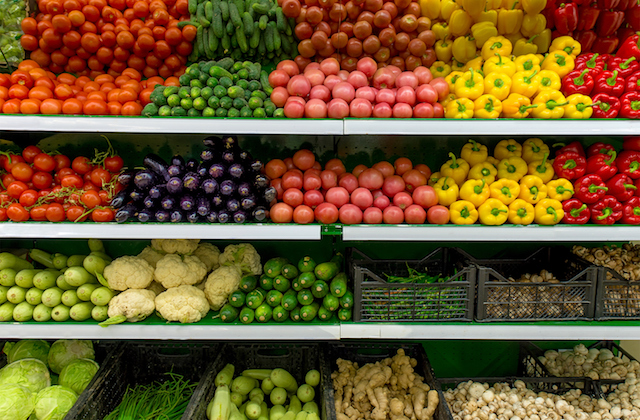The Trump administration’s new budget proposal aims to drastically cut funding from the Supplemental Nutrition Assistance Program (SNAP), also known as food stamps. The program benefits millions of people with low incomes who are experiencing food insecurity around the country.
Under the proposal, which was announced on Monday (February 12), the 80-plus percent of SNAP recipients who receive more than $90 a month in benefits would receive half of those benefits via a "USDA Foods package," NPR reports.
In a press briefing on Monday, White House Office of Management and Budget director Mick Mulvaney described the monthly package as a "Blue Apron-type program," a reference to the high-cost food delivery service. "It lowers the cost to us because we can buy prices at wholesale, whereas they have to buy it at retail," Mulvaney said. "It also makes sure that they’re getting nutritious food."
But, unlike Blue Apron, which delivers fresh foods like produce and meat, the proposed package would only consist of "shelf-stable milk, ready to eat cereals, pasta, peanut butter, beans, and canned fruits and vegetables." The administration views the change as a "cost-effective" approach that will reduce the SNAP budget by 30 percent—$213 billion—over the next 10 years.
There are 16.4 million households and more than 34 million people who rely on SNAP benefits in the United States, according to data from the U.S. Department of Agriculture—and that number is divided among White Americans (36.7 percent), people of color (48.3 percent), and 15 percent of people whose race is marked as "unknown." According to a report from the Williams Institute at the UCLA School of Law, food insecurity and SNAP participation are disproportionately higher among queer and trans people of color.
In the NPR report, critics expressed skepticism that the proposal would be approved in Congress, with some calling it a "logistical nightmare." Recently, Congress opened an investigation into the Trump administration’s Federal Emergency Management Agency for its failure to deliver meal packages to residents in Puerto Rico after Hurricane Maria.
The administration’s 2019 budget proposal hinges on several historically racist and discriminatory attacks on safety net programs that benefit many low-income communities of color. On Twitter, many users denounced the proposal for perpetuating the idea that poor people, particularly poor people of color, are unfit to make good decisions about their health and finances.
The notion that building a supply chain from scratch is preferable to food stamps only makes sense in the context of conservatives obsession with the "black people use food stamps to buy junk food" trope. Oh, and the opportunity for vendors to the program to grift. That too. https://t.co/cPAQVUiUBI
— captain teeb (@neverowned) February 13, 2018
The contempt for poor people in this country is disgusting. This is well beyond the food police who complain if they see anyone buy steak with food stamps. Now they want to send poor people boxes of gruel with powdered milk. God forbid poor people select their own food.
— KD (@Fly_Sistah) February 13, 2018
Trump’s Harvest Box proposal is a pure fuck-you to poor people. Ignoring the reality of food deserts, it perpetuates a myth that those who need nutrition assistance spend it on junk. That may be the entire point, since it’s utterly impractical to execute. https://t.co/eiQGfNXxvx
— Jamil Smith (@JamilSmith) February 13, 2018
Experts and advocates also responded to the proposal following the announcement.
Miguelina Diaz, director of organizing at Hunger Free America, told NPR:
It could be something that [SNAP recipients] don’t even know how to make. […] We deal with different people of different backgrounds. Limiting them by providing them a staple box would limit the choices of food they can prepare for their families.
Stacey Dean, vice president for food assistance policy at the Center on Budget and Policy Priorities posted a statement:
The cuts would affect every SNAP participant, including the unemployed, the elderly, individuals with disabilities and low-income working families with children. [They] would come on top of other administration proposals to shrink the safety net […] on the heels of a tax law that will mainly benefit the wealthy and corporations.
In an emailed statement, MomsRising executive director Kristin Rowe-Finkbeine told Colorlines:
President Trump’s proposal to slash funding and dismantle the program is ridiculous, destructive and short-sighted. It will make our families—especially families of color—hungrier and force them deeper into poverty [….] SNAP helps families live healthy and productive lives, which is one of the reasons why a majority of women, moms and people in this country oppose cuts to its funding. They know that to make our nation strong and prosperous, we must invest in working families, not add to stress and suffering.
